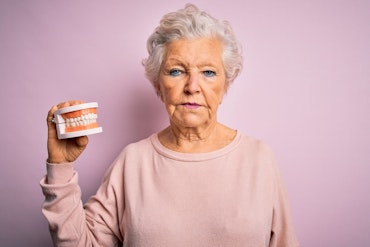Depression: it’s never ‘natural’
How many times have you heard ‘it’s just part of getting old’? Our bodies slow down; our memories fade. How often do we jump to the conclusion that depression and sadness are all part of the process?

How many times have you heard ‘it’s just part of getting old’? Our bodies slow down; our memories fade. How often do we jump to the conclusion that depression and sadness are all part of the process?
Every day we are bombarded with images of healthy young people and families playing outside, laughing and smiling. During the festive season in particular, we see images of happy families interacting everywhere we turn.
We are told by advertisers and the media that being healthy and happy is the most important part of life. So, at what age does health and wellbeing stop being important, and depression considered ‘natural’?
Benetas, a Victorian not for profit aged care provider, recently completed a research paper in partnership with Deakin University and Uniting Aged Care, which found that depression in older people – particularly those receiving aged care support – often goes unrecognised.
The paper proves that signs of depression often slip through unnoticed as a ‘normal’ part of ageing. Depression is not a normal part of ageing – as much as heart disease is not a normal part of ageing.
The paper, Evaluation of a training program for professional residential and community carers in recognising late-life depression in older people, highlights that as a society, we need to be better at identifying depression in older people.
We need to stop sweeping depression and mental health issues under the rug. The report identifies that we have to provide better ways to talk about and treat depression and encourage health and wellbeing in older people – just like we do for younger people.
The research also finds that many staff in aged care do not have the clinical training to recognise the signs if a client in their care is depressed. Many aged care providers don’t have formal procedures and guidelines in place to arrange treatment when it is recognised.
The research recommended training be implemented across all aged care services, both residential and community, to empower and enable all staff to better detect and manage depression.
However, that being said, diagnosing someone with depression is different to labelling them depressed. As a community, we need to explore how a ‘label’ affects each person, regardless of age and how they are treated by others as a result.
If an older person has been diagnosed with depression, or with dementia, or with cancer, we must look beyond that label or illness. What are the reasons for their behaviours? What are their needs that are not being met? What is their history?
The ability to support someone effectively requires looking at the whole person – not just the different ‘labels’ assigned to them.
We all know an integral part of providing care is physiological care, so we tend to focus on this clinical element. Health and wellbeing is more than that. It is just as important for someone to feel socially included and valued.
We live in a society where ageing is not something we discuss or think about until we are forced to. Our focus is certainly shifting with the recognition that our population is getting older, but we are not there yet.
There is so much that we can and should be doing to help older people feel safe, included and happy. Depression cannot be something that is an expectation as we get older.
Promoting happiness and wellbeing in older people whilst providing individual, person centred support must be a priority. We need to be able to identify individual needs and desires, work out what makes a ‘good’ day for somebody and provide them with the support they need to achieve this.
Life is to be enjoyed, regardless of age or health condition. No matter how old you are, there is always life to be had.
Written by Benetas general manager of residential services, Jane Boag, and dementia advisor, Barb Donaldson.























Comments